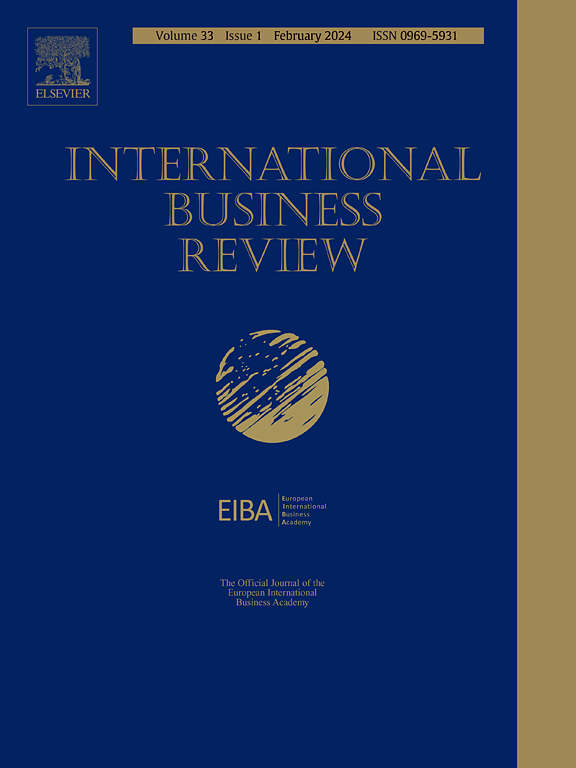组织合法性是新兴经济体商业理论化的核心概念
IF 5.9
1区 管理学
Q1 BUSINESS
引用次数: 0
摘要
在新兴经济体(EEs)运营的外国跨国企业(MNEs)在获得当地利益相关者的组织合法性方面面临重大挑战,这是在该国成功运营的先决条件。这一视角探讨了导致这些合法性挑战的偶然性和认知,以及跨国公司为应对这些挑战所采取的行动,如近期文献所述。我们观察到,环境评估的合法性有许多方面。然而,它往往以一种选择性的方式进行分析——专注于特定的事件或活动,而没有考虑合法性如何产生、维持和丧失的现象的复杂性。我们认为,组织合法性对于环境企业的国际管理研究来说是一个非常有用的概念,而且这个概念比基于类别的概念(如外来责任)更能促进理论的进步。然而,IB文献只是部分地接受了合法性概念的最新理论进展。我们区分了偶然性、代理性和判断性的合法性观点,以探索这一概念的应用如何增强我们对跨国公司在经济环境中运营的理解。这促使我们制定未来的研究议程。本文章由计算机程序翻译,如有差异,请以英文原文为准。
Organizational legitimacy as a core concept for theorizing on business in emerging economies
Foreign multinational enterprises (MNEs) operating in emerging economies (EEs) face major challenges in attaining organizational legitimacy with local stakeholders, a precondition to successful operations in the country. This perspective explores the contingencies and perceptions that cause these legitimacy challenges and the actions MNEs employ to address these challenges, as identified in recent literature. We observe that legitimacy in EEs has many facets. Yet, it is often analyzed in a selective way – focusing on specific events or activities without considering the complexity of the phenomenon of how legitimacy is created, maintained and lost. We argue that organizational legitimacy is a very useful construct for international management research on EEs, and that the concept lends itself to more rigorous theoretical advancement than category-based concepts such as liability of foreignness. However, the IB literature has only partially embraced recent theoretical advances on the concept of legitimacy. We distinguish contingency, agency and judgement views of legitimacy to explore how applications of the concept may enhance our understanding of MNEs operating in EEs. This leads us to develop a future research agenda.
求助全文
通过发布文献求助,成功后即可免费获取论文全文。
去求助
来源期刊

International Business Review
BUSINESS-
CiteScore
14.10
自引率
6.90%
发文量
95
审稿时长
62 days
期刊介绍:
The International Business Review (IBR) stands as a premier international journal within the realm of international business and proudly serves as the official publication of the European International Business Academy (EIBA). This esteemed journal publishes original and insightful papers addressing the theory and practice of international business, encompassing a broad spectrum of topics such as firms' internationalization strategies, cross-border management of operations, and comparative studies of business environments across different countries. In essence, IBR is dedicated to disseminating research that informs the international operations of firms, whether they are SMEs or large MNEs, and guides the actions of policymakers in both home and host countries. The journal warmly welcomes conceptual papers, empirical studies, and review articles, fostering contributions from various disciplines including strategy, finance, management, marketing, economics, HRM, and organizational studies. IBR embraces methodological diversity, with equal openness to papers utilizing quantitative, qualitative, or mixed-method approaches.
 求助内容:
求助内容: 应助结果提醒方式:
应助结果提醒方式:


